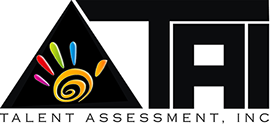Grants and Resources that May Help Schools Fund TAI Products:
OSEP (Office of Special Education Programs)
OSEP has information regarding grant funding for a variety of special education programs, which include transition. The web address to get you there best (as of spring 2013) is:
www2.ed.gov/about/offices/list/osers/osep/index.html
The US Department of Education
This area of the USDEd web site talks about the different types of grants, and will link you to currently "open" grants. There is a quick link to a search window. As of spring 2013, if you type in transition, you get over 40 "hits." Keep in mind grants come and go, so the information is constantly changing. If you don't see anything today, check again in a few weeks!
http://www.ed.gov/fund/grants-apply.html
Education World: The Grants Center
This is an educator's website with a section devoted to grants. The url for the main website is: www.educationworld.com, however to go directly to The Grants Center:
www.educationworld.com/a_admin/grants/additional_grants.shtml
School Funding Center
This is a school funding search engine. It searches nationally, as well as by individual states. The downside of this site is it is a fee-based service. However, they do allow one free search . . . use it well! www.schoolfundingcenter.com
Government Funding
All or some of TAI programs qualify for government funding through:
• Title I – Improving the Academic Achievement of the Disadvantaged
• Title II, Title IID – Enhancing Education Through Technology (EETT)
• Title III – Language Instruction for Limited English Proficient Children and Immigrant Students
• Title IV – 21st Century Schools
• Title VI, Part B – Rural Education Initiative
• Title VII – Indian, Native Hawaiian, and Alaska Native Education
• IDEA – Individuals with Disabilities Education Act
The U.S. Department of Education is the administrator for all federal education programs and funding. Information about the programs can be found in The Guide to U.S. Department of Education Programs, which is published annually.
Specific programs in the Guide that may be beneficial to understand include:
• Academic Improvement Programs
• Assessment Programs
• Indian Education Programs
• Reading Programs
• School Improvement Programs
• Special Education Programs
• Technology Programs
There are also free lesson plans, forums, libraries, and workshops listed at the Federal Resources for Educational Excellence.
TAI Grant Writing Tips
There is no formula for writing a grant proposal or application. In fact, the most common rule is no two grants are alike! However, we have some tips to help you maneuver through the process
1. Read. Read. Read. Be sure to read through the grant carefully. There are guidelines, rules, deadlines, qualifications, and instructions that are generally spelled out in great detail for the grant. Ensure that you qualify and meet or exceed the requestor’s expectations; otherwise, your response most likely will be turned away.
2. Write Cleanly and Concisely. It is always best to say it straight. Answer each question/section directly with enthusiasm and excitement in a specific manner. Use terminology from the grant to highlight the parallels in the request and your answer.
3. Map Out Your Goals/Plan. The more specific you are, the better. Remember that you are competing with others for the same funds. The most detailed, creative, and effective proposals are more likely to be selected.
4. Find a Sample of Success. If it’s possible to review a past successful grant, do it. Sometimes they are published, or you may request one from the funders.
5. Ask for Help. If something is unclear in the request, don’t be afraid to ask for clarification. There are also a number of Web sites that offer free help. And, as always, Study Island will do whatever possible to assist you or point you in the right direction.
6. Proofread. No explanation necessary!
7. Be Positive. Remember, grants are competitive and limited. You will not be awarded every grant you apply for, but the experience will benefit you in the future.
8. Copy. Copy. Create a log of all the submissions you make, and keep a reference copy for yourself. Occasionally, you will be asked for additional information related to your proposal, and it’s good to have a copy of your original on hand. They can also become a good resource library for future applications!
GetEdFunding
http://www.getedfunding.com/
"A free and fresh grant finding resource, dedicated to helping educators and institutions identify the funding they need in budget-tight times. GetEdFunding hosts a collection of more than 600 grants and opportunities culled from federal, state, regional and community sources and is available to public and private, preK–12 schools, districts and educators, higher education institutions, and nonprofit organizations that work with them." -NYS DCDT website
PERKINS 5 GRANT
The Carl D. Perkins Vocational and Technical Education Act, Public Law 105-332
http://www2.ed.gov/offices/OVAE/CTE/perkins.html
For Information:
Andrew Johnson
Phone: 202-260-4170
Fax: 202-205-5522
Vocational Education
--Basic Grants to States
Sponsored by U.S. Department of Education
Web Site: http://www2.ed.gov/programs/ctesbg/index.html
Contact: Edward Smith
U.S. Department of Education
Office of Vocational and Adult Education
Division of Academic and Technical Evaluation
550 12th St. SW
Rm. 11057
Washington, DC 20202-7241
Phone: 202.245.7602; toll-free: 800.USA.LEARN; 800.872.5327
Fax: 202.245.7170
Email: edward.smith@ed.gov
ABOUT US
STAY INFORMED
MORE INFORMATION
- ABOUT US
- OUR PRODUCTS
- UPCOMING EVENTS
- CONTACT US




